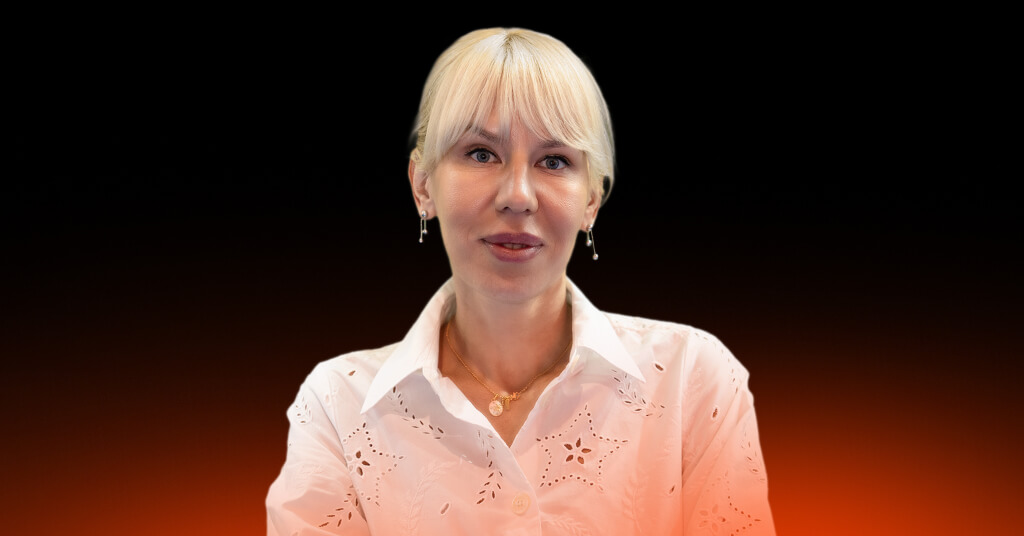The U.S. market, indubitably, is one of the most important for the global iGaming industry, offering significant growth opportunities while still imposing strict regulatory oversight.
In many states, there are well-established licensing frameworks for both operators and suppliers, ensuring that only complaint companies can get involved in the action, creating a safe and trustworthy environment for bettors.
This is why it’s such an attractive market for companies like the fast-betting content and data provider, BETER.
This year, the company, which delivers live streams, real-time data, and odds, made its U.S. debut after receiving registration from regulators in New Jersey, followed by additional approvals to operate in Colorado, Iowa, and Indiana.
The approvals allow BETER to offer its flagship Setka Cup table tennis tournaments in all states, with its ESportsBattle tournaments also licensed in Colorado, a first in the U.S. market.
To learn more, iGF spoke to Valeriia Tarchynska, BETER’s Chief Legal Officer, about the company’s legal and compliance strategy, its plans for the U.S. market and how companies can successfully meet all regulatory requirements while overcoming various challenges.
You recently received regulatory approvals to launch your fast-betting content in U.S. states such as Colorado, Iowa, and Indiana. How do these states fit into your broader plans for the market?
“Our initial strategy for entering the U.S. market was to secure licences/registrations for our Setka Cup table tennis and ESportsBattle tournaments, specifically in New Jersey and Colorado.
“These two states were the top priority because most of our clients are active in them. We opted for New Jersey first and as soon as we secured a registration and went live in the Garden State we saw high demand for our content among local bettors.
“This success motivated us to ramp-up our efforts to obtain additional licenses and approvals in other key states.
“The most recent approvals in Colorado, Iowa, and Indiana allowed our partners to integrate our content seamlessly in a short timeframe.
“We now have applications in progress in North Carolina, Arizona, Ohio, and several others. The experience we gained in the initial states will help us streamline the submission process and obtain approvals more efficiently across the board.”
How did the approvals process differ in each state where you are allowed to offer your products to operators and players?
“The approval process does differ from state to state.
“In New Jersey, for example, our pathway was a two-tier application with additional technical and control steps to meet under the New Jersey Division of Gaming Enforcement’s framework. On the other hand, the Colorado Division of Gaming was more demanding administratively. Beyond regulatory review, it required business registration with the Colorado Secretary of State and the appointment of a local registered agent to satisfy state corporate presence requirements.
“We met all obligations, aligned our documentation accordingly and secured approvals and received our licence within the expected timeline.
“Speaking of Iowa and Indiana, the approval process in these states was among the most straightforward.
“Regulators primarily required standard information about our exclusive tournaments, details on their organization and operations, evidence of robust integrity measures, and confirmation of our cooperation with governing sports federations and international integrity bodies.
“Of course, one of the key aspects of the licensing process in any state is the timeframe for the regulator’s review of the application and licence issuance, which can take several months.
“Another important factor I would highlight is maintaining active communication with the regulator as this helps to identify whether they have any additional questions or comments regarding the submitted documentation package and, if so, to provide timely responses and necessary clarifications.”
What does the approval process actually entail and how do you approach it?
“As I mentioned, the approval process varies materially by state. There is very little standardisation as each authority applies its own definitions, forms and evidentiary thresholds. While most steps are document-driven (applications, filings, disclosures, technical and integrity documentation), and official correspondence is typically in writing, we enhance efficiency by proactively arranging calls and working meetings with the regulator’s team.
“That direct engagement clarifies expectations at early stages of the process, resolves questions in real time and has been a consistent driver of our success in securing timely approvals.”
What are the common challenges you face during the approval process, and how do you overcome them?
“The most common difficulty, regardless of the state in which we are seeking approvals, is determining the exact regulatory procedure we need to follow in order to go live in that state.
“Work in each state always begins in the same way: We communicate with the regulator, explain which services we plan to provide and obtain information on the regulatory requirements that must be met and the stages that need to be completed to launch in that particular state.
“This may involve tournament approval, obtaining a licence or, in some states, undertaking both processes simultaneously. Sometimes this part takes up 50 percent of the entire licensing process and can last several months, requiring constant communication with the regulator and a great deal of patience.
“One of the key factors in securing approval is the reputation of the company applying.
“Transparency in operations is especially important, as it helps establish credibility and maintain strong relationships with regulators and partners.
“This is why our Integrity team has played an important role in BETER securing approvals across all states. The team ensures strict adherence to fair play principles, resulting in only 0.01 percent of all distributed matches being flagged as suspicious.
“We also collaborate with the Esports Integrity Commission and the International Betting Integrity Association, while working closely with law enforcement agencies, sports associations, and governing federations in the countries where our esports and sports arenas are located. “
How do you approach securing necessary approvals in multiple markets worldwide? For example, you also obtained approvals in Peru and Argentina.
“Our core approach to licensing in any given country is based on three key criteria.
“First, we engage local qualified lawyers who can help clearly determine what is specifically required from a service provider like us to enter that regulated market.
“Next, we obtain a copy of the regulatory framework outlining the necessity of completing specific regulatory procedures.
“Finally, we do what is necessary to ensure we comply with the specified regulatory requirements and once the approval has been issued, launch operations in that market.
“When it comes to the differences in regulatory procedures in different countries, in some, such as the US, these processes are fully governed by existing legislation. In countries where gambling regulation is only just beginning, such as in Latin America, regulatory procedures are currently unstable and often subject to change.
“That’s why legal teams must remain flexible and constantly prepared to adapt to new regulatory requirements at short notice.”
Which markets will BETER focus on over the next 12-months? Do you already have license applications in progress? And if so, where?
“For the rest of this year and moving into 2026, we will of course continue our efforts to go live in other states, with the current priorities being Ohio, North Carolina, Arizona, and Kentucky.
“We are also working on securing approvals for our Setka Cup tournaments in Italy and are just awaiting the regulator’s decision.
“We are also planning to initiate discussions with Italy’s Agenzia delle dogane e dei Monopoli (ADM) regarding our exclusive ESportsBattle tournaments. We are also exploring opportunities in Canada, though this remains a secondary priority at the moment.”
Any final thoughts you’d like to leave our readers with?
“When it comes to securing approvals and licences, it’s always going to be a meticulous and lengthy process requiring patience, attention and constant communication with the regulator.
“However, each successful completion of such a process enhances the lawyer’s expertise in the regulatory field and contributes to the company’s further growth and development, making it more than worth the effort.”




